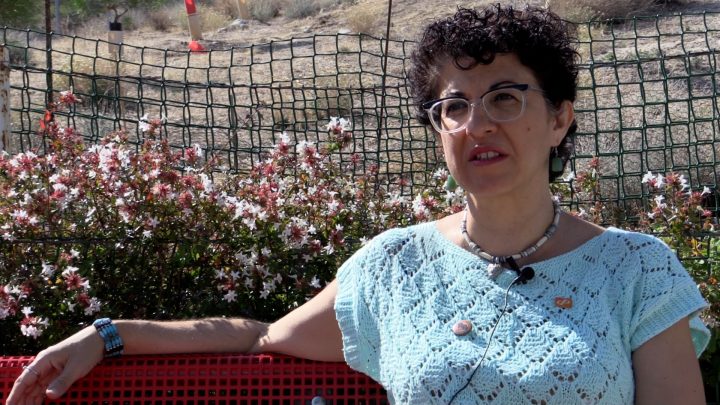Mayte Quintanilla, an activist for a universal and unconditional basic income, is a long-time humanist who has been working for decades to transform the world around her in the political and social fields.
She will participate in the European Humanist Forum 2018 in the area of A New Economy for the Universal Human Nation and as a speaker at the opening session, but she is also one of the protagonists in the documentary film that will premiere at this event “UBI, our right to live“, directed by the filmmaker Álvaro Orus.
EHF2018: It is evident that the economic system we live in is leading us to disaster. When we talk about a new economy, what are we talking about?
We’re talking about an economy based on new values, in which human beings are the central value, and in which resources are managed effectively and efficiently, one in which environmental balance is no longer endangered. We’re talking about an economy that is at the service of people, not people at the service of the economy.
What characteristics must this economy have in order to facilitate the paths towards a universal human nation?
It must be liberating for people, so that everybody has their basic needs covered. And by basic I mean food, clothing, a home, healthcare, energy, communications, knowledge…. It must be possible for all human beings on this planet to live in peace and freedom, and to have the physical and mental space necessary to be able to consider the meaning of their lives, their purpose and their contribution to the world in which they were born.
Which groups and individuals will participate in this working area?
So far we have confirmed the attendance of HRBU (Humanists for Universal Basic Income), RRB (Basic Income Network), Maro Horta from “Faircoop-faircoin”, a group of activists from Resource-Based Economy, on behalf of whom the young Daniel Guardiola will speak, The Montero de Burgos Study Group, represented by Carlos Rossique, activists from the Humanist Party of several countries, Leopoldo Salmaso from “Moneta Bene Commune” from Italy, and we are waiting for confirmation from “Economistes aterrés” from France.
What does “what unites us” mean from the economic point of view that you promote?
In this case, the collectives that make up this working area are united by a common aspiration, an image of an open future, a commitment to that image that involves the construction of alternatives to structural violence, and with it civil disobedience and insubordination to the established order, which has now turned into institutionalised injustice. We all want to put an end to the pain and suffering that humanity is suffering today, we seek to open paths to happiness and freedom.
And, what does the phrase mean to you on an existential level?
It means that there is something great and transcendent within every human being, and that when people heed that call that comes from deep within us, we create alternatives to “what is give” in this world into which we were made to go without being asked; those alternatives, which we first imagine and then create, are acts of freedom, and it is that freedom that we feel is what unites us.
In HRBU, what are you hoping for from the documentary, “UBI, Our Right to live,” which you’re promoting?
It would be good to be able to sow doubt about values such as self-esteem based on production, such as that dignity depends on having a job, the morality of work. Let people understand that the wealth that is produced on this planet belongs to each and every one of us. With this film we want to show that human beings are worthy from the moment of birth, that they are builders and transformers of the world, that they are pure potential, intention and capacity for change. It would be good to get people to stand up and start demanding what is theirs.
What consequences do you see for the implementation of a basic income?
I see people who can finally put their perception, their imagination and their action to work to see what they can contribute to this world, rather than the centripetal approach that we are pushed into today. These days, people are studying to see what they can get out of the world, what they can get out of it in return for their efforts. Vocation and one’s own qualities can hardly be expressed in a world that places us as objects that produce… But what if they no longer had to commodify their existence? What if they no longer had to “sell” their actions? Finally, they could consider their lives as something expansive, growing, generous and transcendent.
It would be a beginning in the distribution of wealth, which would leave us the free energy to build the world we aspire to. A respite, a step towards the empowerment of peoples, the opening up of personal and social future.










